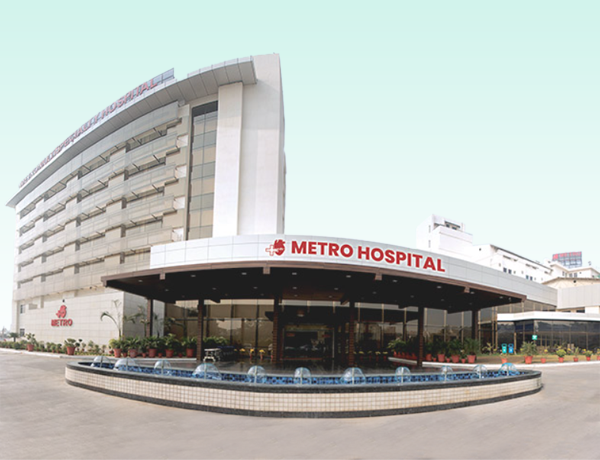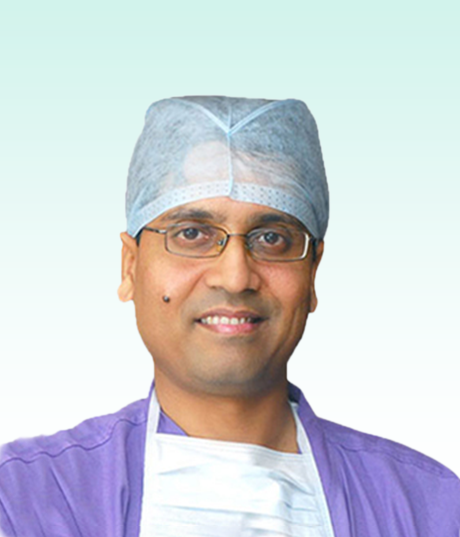Laparoscopic Sleeve Gastrectomy
Laparoscopic Sleeve Gastrectomy (LSG) is a surgical weight loss procedure that involves reducing the size of the stomach to promote weight loss. During the surgery, a large portion of the stomach is removed, leaving a smaller, sleeve-shaped stomach that restricts the amount of food it can hold. This helps patients feel fuller faster and consume fewer calories, leading to significant weight loss over time.

Who Needs Laparoscopic Sleeve Gastrectomy
LSG is recommended for individuals with severe obesity (BMI above 40) or those with a BMI between 35 and 40 with obesity-related health conditions such as diabetes, high blood pressure, or sleep apnea. Candidates for the procedure should have tried other weight loss methods without success and be committed to making lifestyle changes to support long-term weight loss and improved health.
When to See a Specialist
If you are struggling with obesity and have not achieved significant weight loss through diet, exercise, or other weight loss methods, it may be time to consult with a bariatric surgeon. A specialist in bariatric surgery can evaluate your medical history, perform a physical examination, and discuss the various weight loss surgery options, including Laparoscopic Sleeve Gastrectomy, to determine the most suitable treatment plan for you.
Procedure
- Anesthesia: General anesthesia is administered to ensure you are unconscious and pain-free during the procedure.
- Small Incisions: The surgeon makes several small incisions in the abdomen to insert the laparoscope (a thin, flexible tube with a camera) and other surgical instruments.
- Stapling the Stomach: The surgeon uses the laparoscopic instruments to remove approximately 75-80% of the stomach along the greater curvature, leaving behind a smaller, banana-shaped stomach.
- Suturing: The remaining stomach is then stapled closed using surgical sutures or staples to create the sleeve shape.
- Closure: The incisions are closed with sutures or surgical tape.
Road to Recovery
Recovery after Laparoscopic Sleeve Gastrectomy may involve the following:
- Hospital Stay: Most patients stay in the hospital for 1-2 days after the surgery.
- Pain Management: You may experience some discomfort or pain, but your healthcare team will provide pain medication to manage it.
- Diet Progression: You will be put on a liquid diet initially, followed by a gradual transition to soft and solid foods as tolerated.
- Follow-up: Regular follow-up visits with your healthcare provider will be scheduled to monitor your progress and address any concerns.
Risk Management
Laparoscopic Sleeve Gastrectomy is generally considered safe, but like any surgery, there are potential risks and complications, including:
- Infection at the incision sites.
- Leakage from the staple line.
- Blood clots.
- Acid reflux.
- Strictures or narrowing of the stomach.
- Vitamin and nutrient deficiencies in the long term.
Benefits of Laparoscopic Sleeve Gastrectomy
- Significant Weight Loss: LSG can result in significant and sustained weight loss, leading to improved overall health and reduced obesity-related health conditions.
- Less Invasive: Laparoscopic surgery involves smaller incisions, leading to shorter hospital stays, faster recovery, and reduced scarring compared to traditional open surgery.
- Improved Quality of Life: Weight loss after LSG often results in improved mobility, increased energy levels, and better self-esteem.
Frequently Asked Questions
1. How much weight can I expect to lose after LSG?
Weight loss results can vary, but most patients lose a significant amount of excess weight in the first 6 to 12 months after the surgery. The total weight loss depends on factors such as individual adherence to dietary and lifestyle changes.
2. Will I be able to eat normally after LSG?
After recovery, you will need to make dietary changes and eat smaller portions to support weight loss. The surgery helps you feel full faster, but you will still need to adopt a balanced and nutritious diet.
3. Can LSG be reversed?
LSG is not reversible as a significant portion of the stomach is permanently removed during the surgery.
4. Will I need to take vitamin supplements after LSG?
Yes, you will need to take vitamin and mineral supplements, as LSG can lead to reduced absorption of nutrients.
Good physician treats the disease
Behind the word mountains, far from the countries Vokalia and Consonantia, there live the blind texts. Separated they live in Bookmarksgrove right at the coast of the Semantics, a large language ocean. A small river named Duden flows by their place and supplies it with the necessary regelialia. It is a paradisematic country, in which roasted parts of sentences fly into your mouth.
- Trauma & intensive care
- Aged Care
- Community Services
- Diagnosis & Investigation
- Medical & Surgical
- Mental Health
- Rehabitation
- Specialised Support Service
Service Recipient Says

Oxmox advised her not to do so, because there were thousands of bad Commas, wild Question Marks and devious.
Kolis Muller NY Citizen
Oxmox advised her not to do so, because there were thousands of bad Commas, wild Question Marks and devious.
Kolis Muller NY Citizen




















Oxmox advised her not to do so, because there were thousands of bad Commas, wild Question Marks and devious.
Kolis Muller NY Citizen